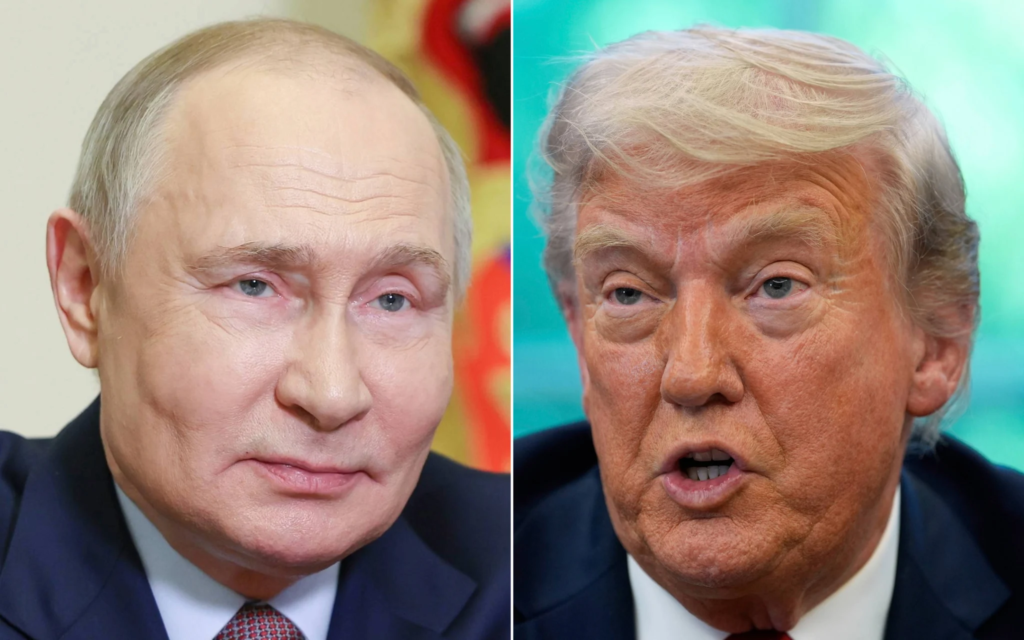
The Kremlin has fired back at U.S. President Donald Trump after his scathing remarks about Russian President Vladimir Putin, describing him as “absolutely crazy” in the wake of Russia’s largest aerial assault on Ukraine. Trump’s comments came just hours after Moscow’s devastating strike, which killed 13 people and injured dozens more.
In a post on Truth Social, Trump expressed growing concern about the Russian leader’s actions. “Something has happened to Putin,” Trump said, adding, “He has gone absolutely crazy. Needlessly killing a lot of people.”
Dmitry Peskov, Putin’s spokesman, responded to the U.S. president’s remarks by claiming they were the result of “emotional overload” among those involved in the ongoing conflict. Peskov emphasized that such comments did not reflect the situation accurately.
The latest escalation occurred after Russia launched its largest combined aerial attack on Ukraine since the invasion began in February 2022. On the night between Saturday and Sunday, Russia unleashed 367 drones and missiles, resulting in at least 13 fatalities. The Ukrainian air force reported that, between Sunday evening and Monday morning, Russia launched an additional 355 drones, killing 10 more people. This attack marked the largest drone assault in the conflict thus far.
Peskov insisted that Russia’s airstrikes were retaliation for Ukrainian attacks on Russian “social infrastructure,” a claim that was swiftly denied by Ukraine’s president, Volodymyr Zelensky. Zelensky dismissed the strikes as politically motivated, stating, “There is no military sense to these attacks—it’s an obvious political choice by Putin, a choice to continue the war and destroy lives.”
As Russia’s military aggression continues, international responses are intensifying. German Chancellor Friedrich Merz announced that Ukraine’s allies would no longer impose range limits on the weapons supplied to the country, a shift that could have significant implications for the ongoing conflict. Merz hinted at the possible supply of Taurus missiles to Ukraine, a move that Germany’s previous government had rejected. These missiles, which have a range of 500 kilometers, could allow Ukraine to target deeper into Russian territory.
“The range restrictions have been removed,” Merz said. “This means that Ukraine can now defend itself, for example, by attacking military positions in Russia.”
In line with this announcement, it has been reported that Zelensky is expected to visit Berlin on Wednesday, though this has not been confirmed by the Ukrainian government. The delivery of long-range weapons has already been a point of contention, as countries like the U.S. and the UK have previously imposed restrictions on the use of such weaponry.
In a statement to reporters, Trump indicated that he was contemplating additional sanctions against Russia, reiterating his long-standing criticism of Putin’s military strategy. “I’ve known him a long time, always gotten along with him, but he’s sending rockets into cities and killing people, and I don’t like it at all,” Trump said during a rally in New Jersey.
Trump’s remarks also included pointed criticism of Zelensky, whom he accused of exacerbating the conflict. “Everything out of his mouth causes problems,” Trump said. “I don’t like it, and it better stop.”
Despite growing tensions, the U.S. has continued to attempt peace talks, though with limited success. Russia and the U.S. have held discussions about a potential ceasefire, with the latest phone call between Trump and Putin lasting over two hours. While Ukraine has publicly agreed to a 30-day ceasefire, Russia’s stance remains unclear, with Putin suggesting that a “memorandum” could be developed rather than a formal peace agreement. Many in Kyiv and European capitals view this as a delay tactic.
The conflict continues to reshape the geopolitical landscape, with Russia holding approximately 20% of Ukrainian territory, including Crimea, which Moscow annexed in 2014.
As the war drags on with no immediate end in sight, the international community watches closely, aware that any misstep could further inflame an already volatile situation. With the situation changing by the day, Trump’s emotional response underscores the ongoing political tensions surrounding the conflict and the West’s approach to managing relations with Putin’s Russia.
